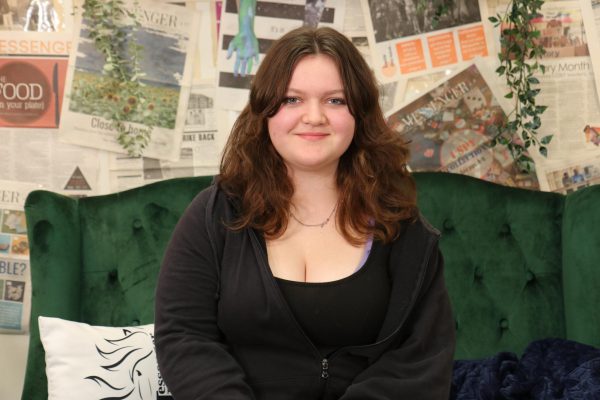When Madison Cook, sophomore, speaks to others, her sentences are full of filler words.
“I get really nervous when I’m talking and just reach for whatever I can think of, and it’s usually ‘like’ or ‘um’,” Cook said.
For many students, filler words are a natural part of communication. While they can be annoying, they give a person time to think about what to say next, Cook said.
“Sometimes I just take really long periods of time to think, but I think that’s worse than using ‘like’ or ‘um’,” Cook said.
Ankush Vasireddy, senior, said filler words are also common because they are a habit.
Vasireddy has been doing Speech and Debate since freshman year. Avoiding filler words can make a person’s speaking smooth and concise, Vasireddy said.
“When you’re giving a speech, it’s definitely stronger not to use filler words,” Vasireddy said. “I don’t think it’s harmful to use filler words in a conversation in a casual setting because it’s natural and you’re not trying to be concise when you’re speaking with a friend.”
Cate Sanazaro, language arts teacher, sponsors Speech and Debate and said filler words usually occur in public speaking when a person is unprepared.
“Practice is the best method of getting over using too many filler words,” Sanazaro said.
Sanazaro recommends a free app called Speeko to help a person practice speaking and focus on filler words. Speeko provides a prompt, records a person’s response and assesses different aspects of speech, such as tone, rate and the amount of filler words used.
To practice for formal events such as a job interview, a person can answer rapid-fire questions to stimulate the conditions.
“I think that having someone listen to you and count your filler words is very helpful,” Sanazaro said.






